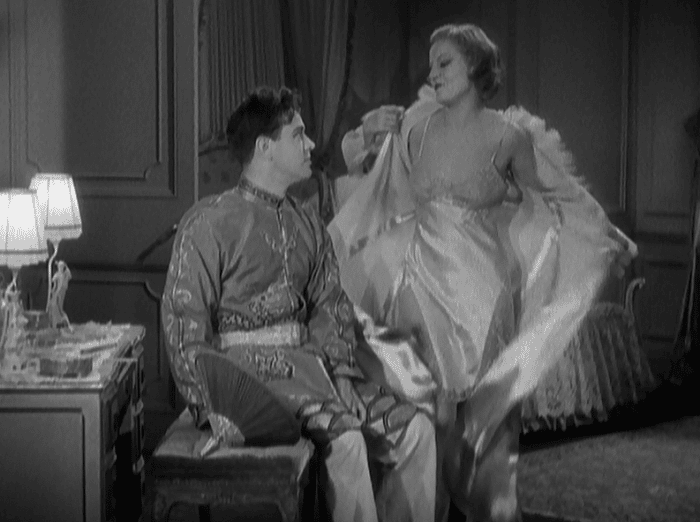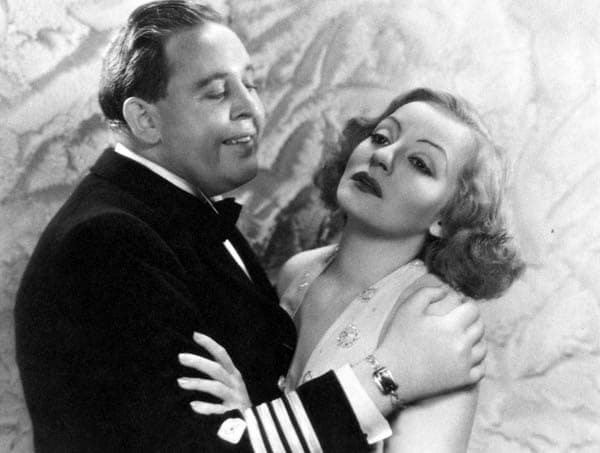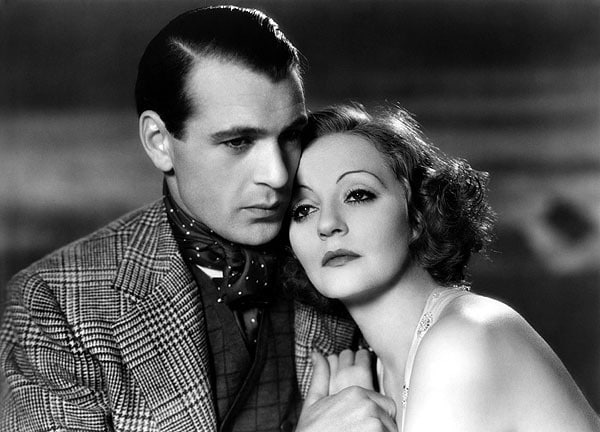Read also:
How to Watch FX Live Without CableHow To Watch AMC Without CableHow to Watch ABC Without CableHow to Watch Paramount Network Without CableKinoKultur is a thematic exploration of the queer, camp, weird, and radical releases Kino Lorber has to offer.
Of the baritone temptresses from yesteryear’s Tinseltown, Tallulah Bankhead (1902 – 1968) is less talked about. Outside of camp circles, Ms. Bankhead rarely receives the level of attention as her contemporaries like West, Garbo, Dietrich, and later Lauren Bacall. But two Pre-Code films newly released by Kino Lorber attempt to resuscitate some of her appreciation.
The Cheat (1931) along with Devil and the Deep (1932) highlight Bankhead as an American maven of melodrama, who wasn’t afraid to take on dangerous and wild roles. It’s through the liminal women she played that we can see not just America’s hopes, but, more importantly, its fears.
The Cheat opens with titles in an orientalist font, then a statue of Yama. Already we’re in the realm of American exotic fantasies. And there, in the center of the gambling floor, with her perfectly arched and razor-thin eyebrows, is Mrs. Elsa Carlyle (Tallulah Bankhead). It’s not enough that she’s in this den of sin; she’s participating in it, cutting cards and robbing Peter to pay Paul, so that she and her doting husband, Jeff (Harvey Stephens), don’t lose their place in society. Is she “the cheat”? The film will gleefully play with different ideas and forms of “cheating” throughout its entirety.

Elsa’s debt and dealings eventually deliver her to Hardy Livingstone (Irving Pichel). Newly returned from “the Orient,” Livingstone is an eccentric who fills his home with specially branded artifacts from his conquests, keeping a very peculiar “gallery of ghosts,” a “Bluebeard’s chamber” of dolls, each representing the women who were “kind” to him. Though clearly unnerved by Livingstone, Elsa nonetheless smolders and flirts with him to keep his generosity on her side. But when Livingstone makes an Indecent Proposal to get Elsa out of debt, will she become one of his dolls or risk reputation and ruin?
Director George Abbott leans into the natural gravitas she emports that immediately draws your eye to her. She is rightly always the focus of the scene. Though it is unquestionably her picture, Bankhead is an incredibly generous actress, always welcoming her male co-stars to play in her light.
To be in a film starring Bankhead, this invited play comes with a risk. The worlds Bankhead’s characters inhabit are often on the racial edges of a segregated society, what white folks considered the social “wild.” The Cheat draws on anxieties around Chinese gambling and opium dens and misconstruals about South Asian gods of “death” to set up airs of suspense, threat, and danger.
Devil and the Deep continues this tropeing into the North African bazaar. This melo-romantic submarine picture is in many ways a wonder. It’s as packed with genres as it is stars. This time Tallulah takes on the role of Diana Storm, the unhappy wife of naval commander Charles (Charles Laughton) who, despite his strictures, can’t prevent his wife from flirting with young officers (like Cary Grant). But when Diana falls in earnest for the strapping Lieutenant Sempter (Gary Cooper), her husband will take drastic measures of revenge to torpedo their romance.
While its visuals and dialogue may not be as considered as in The Cheat, Devil and the Deep more than makes up for it with star power and committed delivery. Laughton, fresh from stardom on the English stage, is perfect as the sweaty and disturbed commander. Cooper is at the height of his refined charms, Grant just beginning his remarkable ascent.

But they’re pawns in the hands of Ms. Bankhead. Just as in The Cheat, Bankhead continues her persona as a clever, morose, sexually liberated, situationally confined wife. Through Diana’s dissatisfaction with marriage and women’s lot in general, Bankhead is able to ridicule conservative social values through the tenor of her voice, the arch of her insect-like eyebrows, gesture, and camp posturing.
It’s a tale of romance, revenge, psychology, and emergency. Tensions rise and ships sink against the backdrop of the North African coast. Yet this setting plays more than a background role in the film.
Just as it was seen as a fitting masquerade theme in The Cheat, the bazaar held and is in some ways continues to hold sway in Westerners’ Orientalist imagination as a place of seductive and terrifying mixing, a loud and scented place with wild people and economies. A seemingly lawless place where anything could happen. We still use the term for anything that defies organization and understanding. It’s in this place of jumbled morals and markets that Diana first has her meet cute with Lt. Sempter.
As Bankhead and Cooper cuddle up next to a foam palm tree in front of a detailed vaguely-Moroccan backdrop, Cooper desperately tries to ruin the mood by getting to know her. “There’s magic out here,” she scoffs. “Do you want to kill it?” This is an un-real, fanciful place that Diana wants to keep unburdened by mundanity. But when Lt. Sempter spills a bottle of perfume he bought at the bazaar, the moment is gone and the secret couple have to return to reality.

Yet the lingering perfume betrays them. The spiced and sweltering African air pressurizes Charles’ already fragile mental state. This a place in which the environment and anyone who inhabits it runs hot and unrestrained. The only way to cleanse this drama of domestic drought and desertion is to dive to the depths and wash it away.
Both The Cheat and The Devil and the Deep are a curious and furious blend of film genres. They are melodramas, psychodramas, disaster films, and literary folktales. And this is all aided, supported, and exploited by their “exotic” settings. By placing their characters amongst racial others, the directors of these films signal to their assumed all-white audiences that these characters are similarly morally ambiguous. And just as the “Asian-ness” or “African-ness” are a hodgepodge composite of different cultures and peoples as if they were interchangeable, these films treat genre the same way.
But such problem films are where Tallulah Bankhead thrives. Like the characters she plays and the films in which she stars, Ms. Bankhead is a contradiction of her times. Politically active, socially conscious, brash, and famously bisexual, she doesn’t fit into the established liberal narrative of a repressed age. And this is where her power and draw lies as a performer. Through her singular raspy voice and wide cynical eyes, Tallulah Bankhead is able to easily and richly ascend the melodramatics of impossibility, to a level of critical camp. Bankhead, with all her bravado, shows the limits in the lives of the women she plays. Through a winking eye and tongue in cheek, she can push against the surface tension and reveal a performance style that is at once both costume and commentary.